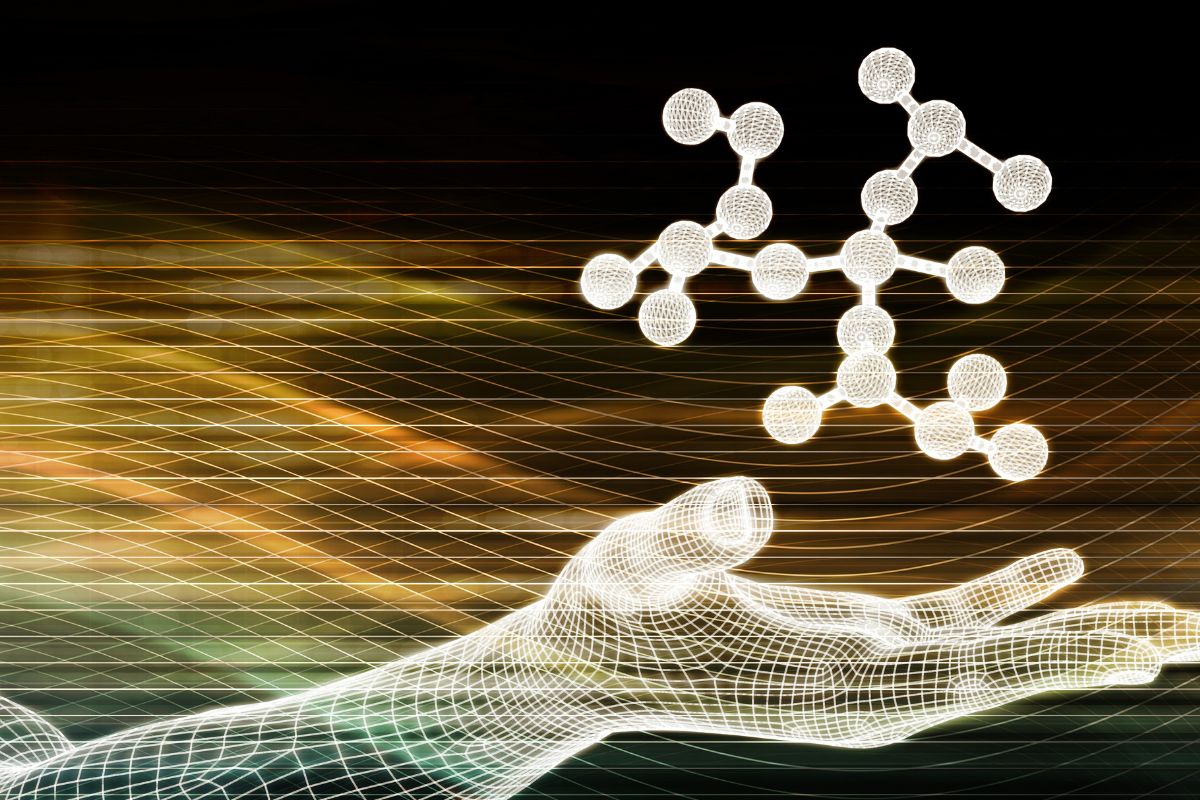Does Delta 8 Help With Headaches: A Concise Analysis
Headaches can turn a day into a steep uphill battle. But guess what? Delta-8 THC might just be the magic elixir you’ve been searching for to kick those persistent headaches to the curb. Though scientists are still digging for concrete proof to fully endorse it, this gem from the cannabis world might just be the key you need to unlock a pain-free life. Dive into this exploration; it could be the solution to make your headache woes vanish. Don’t hesitate – this could very well be your chance to wave farewell to headaches once and for all.
Delta-8 THC is chemically similar to the well-known and more potent Delta-9 THC but has milder psychoactive effects. It is believed to help with various conditions, including pain, nausea, and anxiety. Preliminary research indicates that Delta-8 THC may be beneficial in relieving headaches, but readers should be cautious as conclusive evidence has not been established. It is essential to consider the potential benefits and risks, legal and safety factors, and dosage and usage recommendations when considering Delta-8 THC for headache treatment.
Key Takeaways
- Delta-8 THC may offer headache relief, but scientific research is limited and more studies are required to confirm its effectiveness
- Potential benefits include pain reduction, calming of nausea, and anxiety relief, but side effects and risks should be considered
- Selecting appropriate forms, dosages, and following legal and safety guidelines are key factors when using Delta-8 THC for headache relief
The Science Behind Delta-8 THC and Headaches

Delta-8 vs Delta-9 THC
Delta-8 THC is a minor cannabinoid found in the cannabis plant, typically in lower concentrations than its more famous counterpart, Delta-9 THC. The two cannabinoids are structurally similar, but Delta-8 has a slightly different chemical bond that affects how it interacts with the body’s endocannabinoid system. This difference leads to Delta-8 providing a milder, more relaxed experience compared to Delta-9 THC, with potentially fewer side effects such as anxiety and paranoia.
Endocannabinoid System
The endocannabinoid system is a complex cell-signalling system found in the human body that plays a critical role in regulating essential physiological processes such as pain, mood, memory, and appetite. It consists of endogenous cannabinoids, receptors, and enzymes responsible for breaking down these cannabinoids. The two primary receptors in the endocannabinoid system are CB1 and CB2 receptors. Delta-8 THC interacts with these receptors, specifically the CB1 receptor, which is highly concentrated in the brain.
CB1 Receptor
The CB1 receptor is primarily found in the brain and central nervous system, with a smaller presence in peripheral tissues. When Delta-8 THC binds to the CB1 receptor, it initiates a cascade of cellular responses that can influence various physiological functions. Research suggests that the activation of CB1 receptors may play a role in modulating pain transmission and inflammation.
In the context of headaches, there is limited research on the direct effects of Delta-8 THC. However, some studies have explored the potential benefits of other cannabinoids like CBD, which may have anti-inflammatory, analgesic, and neuroprotective properties that could potentially alleviate headache symptoms. Further research is needed to understand the specific mechanisms behind Delta-8 THC’s potential impact on headaches and how it interacts with the endocannabinoid system and CB1 receptors to achieve these potential benefits.
Potential Benefits of Delta-8 THC for Headache Relief

Pain Relief
Delta-8 THC is thought to have analgesic properties, which could potentially provide relief for those experiencing headaches. It interacts with the body’s endocannabinoid system, which plays a key role in regulating pain. By binding to cannabinoid receptors in the nervous system, Delta-8 THC may help to alleviate headache-associated discomfort. While more research is needed to fully understand its effectiveness, some Delta-8 THC products are being used by those seeking an alternative headache remedy.
Anxiety Reduction
Headaches can often be exacerbated by feelings of anxiety and stress. Delta-8 THC has also been reported to have potential anxiety-reducing effects. By impacting the nervous system, this compound may help to provide a calming effect, subsequently lessening the severity of a headache. However, it’s important to note that individual responses may vary, and further research is required to validate these claims.
Nausea and Vomiting Reduction
For those who experience headaches accompanied by nausea and vomiting, Delta-8 THC could offer some relief. It has demonstrated antiemetic properties, which might help to reduce nausea and vomiting. By lessening these symptoms, individuals experiencing headache-related nausea may find some respite in the use of Delta-8 THC. While more studies are needed to establish its efficacy, the potential benefits of this compound offer an interesting avenue for future headache relief research.
Research on Delta-8 THC and Headaches

Migraine Studies
While there is limited research focusing specifically on Delta-8 THC and headaches, several studies have examined the potential benefits of cannabinoids in treating migraines. Given Delta-8 THC’s similarity to other cannabinoids like Delta-9 THC and CBD, exploring these studies can provide some insight into its potential use for headache relief.
A study on consumer experiences with Delta-8 THC found that some users reported it being helpful for managing headaches, although this was not a primary focus of the research. Another piece of research found that certain cannabinoids, particularly those acting on the CB1 receptor, could potentially be effective in treating migraines. Since Delta-8 THC is known to interact with CB1 receptors, this suggests a potential benefit for migraine sufferers.
However, more comprehensive studies are required to fully understand the impact of Delta-8 THC on migraines and other types of headaches.
Delta-8 THC vs CBD
Comparing Delta-8 THC and CBD can shed light on their potential benefits for headache relief. Both cannabinoids share similar properties, such as their anti-inflammatory and analgesic effects, which may contribute to alleviating headache symptoms.
Delta-8 THC is distinct from CBD in that it has mild psychoactive effects, although less pronounced than Delta-9 THC. This may make Delta-8 THC more suitable for people seeking relief without experiencing strong psychoactive effects typically associated with Delta-9 THC. However, some users may prefer CBD as it is non-psychoactive and may provide relief without altering mental function.
It should be noted that individual responses to Delta-8 THC and CBD can vary, and it is important to consult a healthcare professional before using either substance for headache relief or other health issues.
Side Effects and Risks
Psychoactive Effects
Delta 8 THC is known to have psychoactive effects, although milder compared to its more well-known cousin, Delta 9 THC. When used in moderation, Delta 8 can provide relaxation and relief from pain, such as headaches. However, it can also cause minor cognitive changes, including alterations in mood, mental clarity, and perception of time. It is essential to start with a low dosage and gradually increase if needed, to avoid any unwanted side effects.
Paranoia
While Delta 8 is less likely to induce paranoia compared to Delta 9, it still carries a risk, depending on individual susceptibility and dosage. Some people may experience anxiety and paranoia while under the influence of Delta 8, especially if they are prone to these emotions due to a history of mental health disorders. To minimize the risk, it’s advised to begin with a low dose and monitor your response to determine if Delta 8 is suitable for you and your headache relief.
Hallucinations
Though Delta 8 is typically less potent than Delta 9 THC, there is still a possibility of experiencing hallucinations, especially if you consume large amounts. These hallucinations can be visual, auditory, or tactile and should be taken into consideration before deciding to use Delta 8 for headache relief. As with paranoia, starting with a low dose and adjusting accordingly can help mitigate this risk. It is also essential to be aware of any existing mental health conditions, as these may make you more susceptible to hallucinations or other adverse side effects.
Different Forms of Delta-8 THC

Delta-8 THC, a cannabinoid derived from the hemp plant, is quickly gaining popularity as an alternative to Delta-9 THC, commonly found in marijuana. It offers a variety of products to cater to different preferences and consumption methods. In this section, we’ll explore some popular forms of Delta-8 THC, including tinctures and edibles, vapes and flower, as well as concentrates and softgels.
Tinctures and Edibles
Tinctures and edibles are a popular choice for consumers looking to enjoy the effects of Delta-8 THC discreetly and without the need for inhalation. Tinctures come in liquid form and can be added to beverages or taken sublingually for fast absorption. Meanwhile, edibles are ingested and can come in various forms like gummies, chocolate, and baked goods, providing a tasty and convenient option for consumption. These methods can offer longer-lasting effects compared to other consumption methods.
Vapes and Flower
The vaping market has embraced Delta-8 THC as a favored option for those seeking a smoother, milder psychoactive experience. 2 Gram Vape Cartridges and 510 threaded cartridges are available for consumers looking for easy-to-use, portable vaping options. These cartridges can be attached to compatible vape pens, offering convenient and customizable experiences.
For consumers who prefer a more traditional smoking experience similar to marijuana, Delta-8 THC flower is also available, which can be rolled into a joint or smoked using a pipe or other smoking devices.
Concentrates and Softgels
For those looking for more concentrated forms of Delta-8 THC, products like waxes, shatters, and other concentrates can be found. These high-potency products can be used with specialized dab rigs or vaping devices designed for handling concentrates. It is crucial to use these products responsibly, as their potency can be substantially higher than other Delta-8 THC products.
Softgels offer another discrete consumption option, providing pre-measured Delta-8 THC doses in easy-to-swallow capsules. Perfect for those looking for consistent dosages and a convenient way to add Delta-8 THC to their daily wellness routine.
In conclusion, Delta-8 THC products cater to various preferences, offering multiple consumption methods and product types. Whether one prefers tinctures, edibles, vaping, or concentrates, Delta-8 THC provides accessible options for consumers looking for a hemp-derived alternative to marijuana that is both enjoyable and effective.
Dosage and Usage Recommendations
Starting Dosages
When using Delta-8 THC to help with headaches, it’s essential to start with a low dosage and gradually increase it to find the ideal amount for your specific needs. Initial dosages may range from 2.5 mg to 5 mg. It’s recommended to wait at least two hours between doses to assess the effects and avoid possible side effects like nausea, dizziness, or loss of consciousness.
Since people have different sensitivities to Delta-8 and experience varying degrees of headache severity, individualized dosing is crucial for optimal results. The goal is to achieve the desired pain relief without experiencing adverse effects.
Proper Methods of Administration
There are multiple methods of Delta-8 administration. Choosing the right method can help ensure a more effective and enjoyable experience when using Delta-8 for headache relief.
- Oral Dose: Consuming Delta-8 through ingestion, such as in capsules or edibles, provides a slower onset of effects since it must pass through the digestive system before entering the bloodstream. This method may take 1 to 2 hours before effects are felt but can provide longer-lasting relief.
- Sublingual: Placing Delta-8 directly under the tongue, either in oil or tincture form, allows it to be absorbed into the bloodstream more quickly, bypassing the digestive system. Taking Delta-8 sublingually typically results in a faster onset of effects (around 20 to 45 minutes) and may be advantageous when seeking rapid relief from headaches.
To use Delta-8 sublingually, follow these steps:
- Measure the recommended starting dosage using a dropper or provided measuring tool.
- Place the dose under your tongue and hold it there for approximately 60 seconds before swallowing.
- Be patient, as the full effects may take up to an hour to manifest and last from 4-6 hours.
In conclusion, starting with a low dosage and selecting the appropriate method of administration are essential for maximizing the potential of Delta-8 THC in alleviating headaches. Be patient, pay attention to your body’s reaction, and adjust your dose and method accordingly for the best possible outcome.
Legal and Safety Considerations

FDA Regulation
The Food and Drug Administration (FDA) is responsible for regulating the safety and necessity of pharmaceuticals, including cannabis-derived products like Delta-8-THC. Delta-8-THC is a cannabinoid receptor compound found in the Cannabis sativa plant and is known to have varying effects on different individuals , including potential relief from headaches or migraines. As with other cannabinoids, the FDA regulates the quality and purity of Delta-8 products to ensure public health safety. Any claims made by producers of Delta-8-THC food or drug products must be substantiated by science, as required by the FDA.
State and Federal Laws
Delta-8-THC exists within a complex legal framework on both state and federal levels. While derived from the Cannabis sativa plant, Delta-8-THC has different psychoactive properties than the more well-known Delta-9-THC, which is currently illegal under federal law. Some studies have shown that Delta-8-THC may have potential therapeutic benefits, including potential relief from headaches and migraines, without causing severe cognitive impairment ,easing the debate around its legal status.
However, the legal status of Delta-8-THC varies between states. Some states allow the production, sale, and use of Delta-8-THC, while others categorize it as a controlled substance. To ensure compliance with state and federal laws, it is crucial to research the legal status of Delta-8-THC in your region.
When considering Delta-8-THC as a potential treatment for headaches or migraines, it is essential to understand the legal landscape surrounding its use. Furthermore, the safety and quality of Delta-8-THC products must be a top priority to ensure its therapeutic potential is appropriately harnessed for symptom relief.
Frequently Asked Questions
Does Delta 8 alleviate migraine symptoms?
Delta 8 may have the potential to alleviate migraine symptoms. While there isn’t conclusive evidence specifically related to Delta 8, cannabinoids in general have been shown to have a positive effect on serotonin release in platelets from migraine patients. Further research is needed to confirm the direct impact of Delta 8 on migraine symptoms.
Can Delta 8 reduce headache frequency?
There is limited information directly linking Delta 8 to reduced headache frequency. However, as part of the cannabinoid family, Delta 8 may share similar pain-relieving properties with other cannabinoids. Until more studies are done on Delta 8’s specific effects on headache frequency, it is advisable to consult a doctor for appropriate guidance.
Do specific Delta 8 strains work better for headaches?
There isn’t enough evidence to pinpoint specific Delta 8 strains that work better for headaches. As with any cannabinoid, individual responses can vary, and what works for one person may not necessarily work for another. It is recommended to experiment with different strains and dosages under proper guidance to determine the best fit for your needs.
What is the recommended dosage of Delta 8 for headache relief?
The recommended dosage of Delta 8 for headache relief can vary depending on multiple factors, such as individual tolerance levels and the severity of the headache. As research on Delta 8 is still limited, it is crucial to start with a low dose and gradually increase the dosage while monitoring your body’s response. Consult a medical professional for specific advice on dosing.
Are there any side effects of using Delta 8 for headaches?
Despite potential pain-relieving properties, Delta 8 can also have side effects. Some common side effects may include dizziness, dry mouth, and changes in appetite. As with any treatment, it is important to weigh the potential benefits and risks. If you experience any adverse reactions or if your headache symptoms worsen, consult a healthcare professional.
How does Delta 8 compare to other pain relievers for headaches?
When comparing Delta 8 to other pain relievers for headaches, it is essential to consider factors such as effectiveness, side effects, and individual preferences. While research on Delta 8 is still limited, cannabinoids have shown potential in managing sleep and pain, which could be beneficial for headache relief. It’s crucial to consult a healthcare professional to discuss the most suitable pain-relief options for your specific situation.







